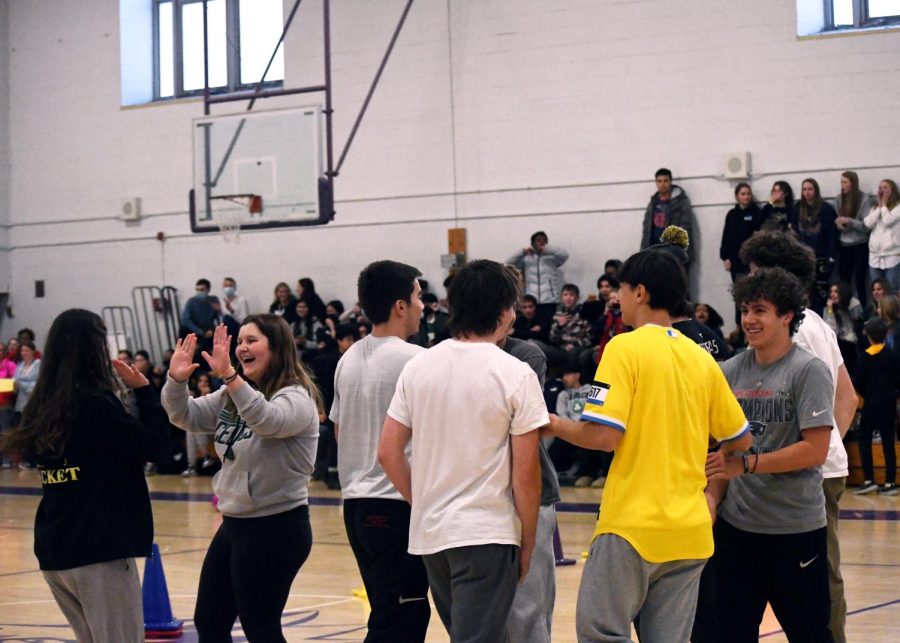Ten Things I Hate About Teen Portrayal in Media
Art both imitates and informs life. Films and shows have the ability to impact viewers’ mindsets significantly, especially those of impressionable teenagers. High school is a transformative era, when harsh academic pressure is accompanied by a vulnerable mindset.
The most common high school advice teenagers hear from upperclassmen is inarguably “high school is not your whole life.” The overused and romanticized coming-of-age plots that remain prominent in different media, however, convey just the opposite through overdramatizing and hyperfixating on clichéd conflicts.
Various nostalgic movies and TV shows revolve around “Peter Pan” characters in high school that never seem to age. Even if the characters transition into adulthood or graduate, it is always a glimpse into a too-perfect future, unrealistically skipping over the hardships of growing up.
To make the storyline more engaging, films will cut out the “boring” parts of the characters’ lives like working a job or doing homework. Boston Latin School science teacher Mr. Conor Fearon says, “It’s always amazing how little time they have to spend in class and other life responsibilities. Don’t they do sports or clubs that eat up all of their time after school and then go right into doing homework?”
They instead spotlight privileged teenagers who hyperfixate on temporary issues. Rather than showing characters in class or working at a job, they compress hours of dull work into a matter of minutes. This creates a fantastical sense of reality, especially as teenagers begin to think that a filtered, thrilling lifestyle is normal.
How did Elle from The Kissing Booth miraculously end up at Harvard when her biggest concern was how fooling around with Noah would screw over her friendship with Lee? Most students in real life put blood, sweat and tears into getting accepted to the university of their dreams, and even then, there is still no guarantee.
The carefree and glamorous lifestyles of on-screen teenagers differs from the lives of students in highly competitive and academic-focused environments like BLS. Most students spend hours upon hours studying and doing homework instead of enjoying their private lives.
As Teagan Yuen (III) puts it, “Real life is too hard for people to confront so they like it when things are fabricated, so they make movies that are really fun and about things that I can never do — like partying — but because I see it in media so much, it makes me get FOMO [(fear of missing out)].”
Furthermore, films and shows in the coming-of-age, or bildungsroman, genre trap their characters in a dichotomy: growing up or being grown-up. There is little room to actually grow, to make mistakes or live the kind of life that leads to genuine maturity.
There is no one “turning point” in one’s life where one magically becomes “grown-up” or a changed person, as films have portrayed. Change occurs over time with one always learning and growing throughout one’s life. People have malleable perceptions that evolve as they grow older due to unique, personal experiences. There is no definite point when one will completely “mature.”
The actors that play high schoolers are often much older in real life, most often in their late twenties or early thirties. Real teenagers watching the “teenagers” on screen subconsciously reevaluate themselves because they feel like they are supposed to talk, look and present like a 32-year old.
BLS Keefe Librarian Ms. Susan Harari explains, “I remember seeing American Graffiti when I was about 14, which is about teenagers in California. [The actors] are all played by much older people, they’re really not teenagers, and I didn’t have that life at all. […] You look at these teens that are obviously older than you and imagine that’s what life will be like when you’re older, that you would have a boyfriend, that you’ll have a car, that you’ll be free from your parents.”
Humans are visual learners, so naturally, when Hollywood chooses to screen the eventfully fun and privileged lives of a selective cast, teenagers can’t help but compare themselves. Teenagers, however, shouldn’t envy the over-saturated lifestyles rolling on the big screen; after all, chasing clichés is nowhere comparable to reality and should not define one’s personal priorities.








